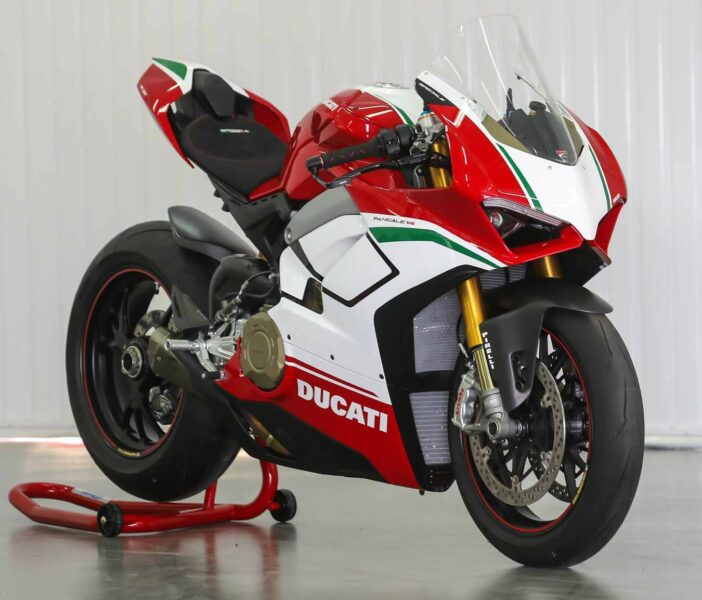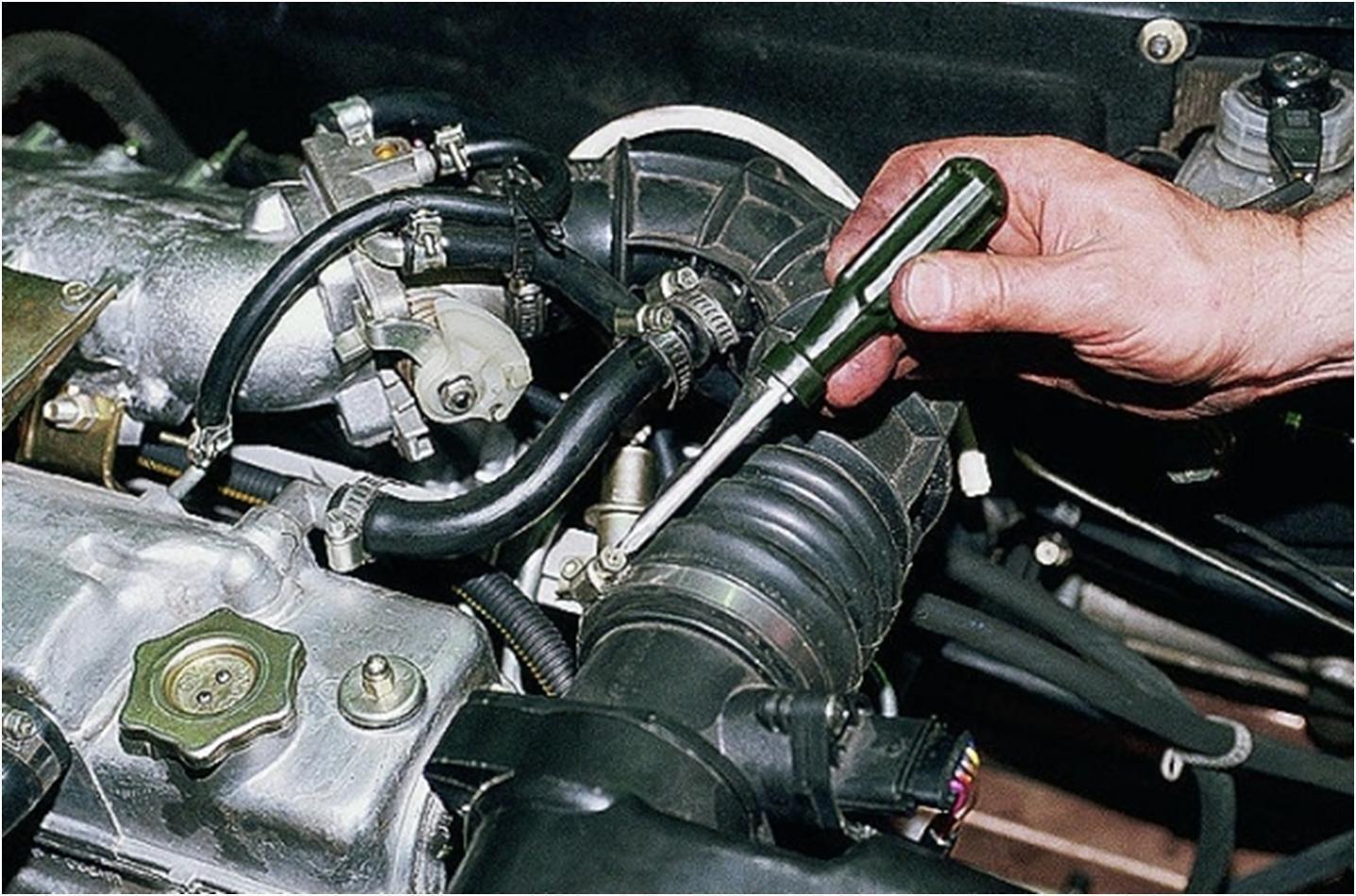
The car starts up hot and stalls - causes and remedies
Content
If the car warms up and stalls, and does not start, then the malfunction is caused by improper operation of the cooling system (weak coolant circulation or a dirty radiator), while the arrow of the temperature indicator is near the red zone, but does not cross it.
The owner of any car may be faced with a situation where the car stalls on the go with a warm engine. If this happens, it is necessary to quickly establish the cause of this behavior, then repair the vehicle, otherwise it may stall at the most inopportune moment.
What happens to the engine and fuel system when heated
To determine the reasons why the car stalls when hot, it is necessary to consider the processes that occur in the power unit and the fuel system during heating. While the engine is cold:
- thermal clearances between valves and camshaft and piston ring locks are maximum;
- the oil is very viscous, so the thickness of the lubricating layer on rubbing parts, as well as their protection, is minimal;
- the temperature inside the combustion chamber is equal to the street temperature, which is why the fuel flares up more slowly from a standard spark.
Therefore, the car engine starts in extremely unfavorable conditions, and warming up is necessary to enter normal operation.
As it warms up:
- thermal gaps are reduced, which leads to an increase in compression and an increase in engine efficiency;
- the oil liquefies, providing effective lubrication of rubbing surfaces;
- The temperature inside the combustion chamber increases, so that the air-fuel mixture ignites faster and burns more efficiently.
These processes occur inside automobile motors of any type. If the power unit is working, then no problems arise, but if the car heats up and stalls, then the cause of this is always a malfunction of the engine or fuel equipment.
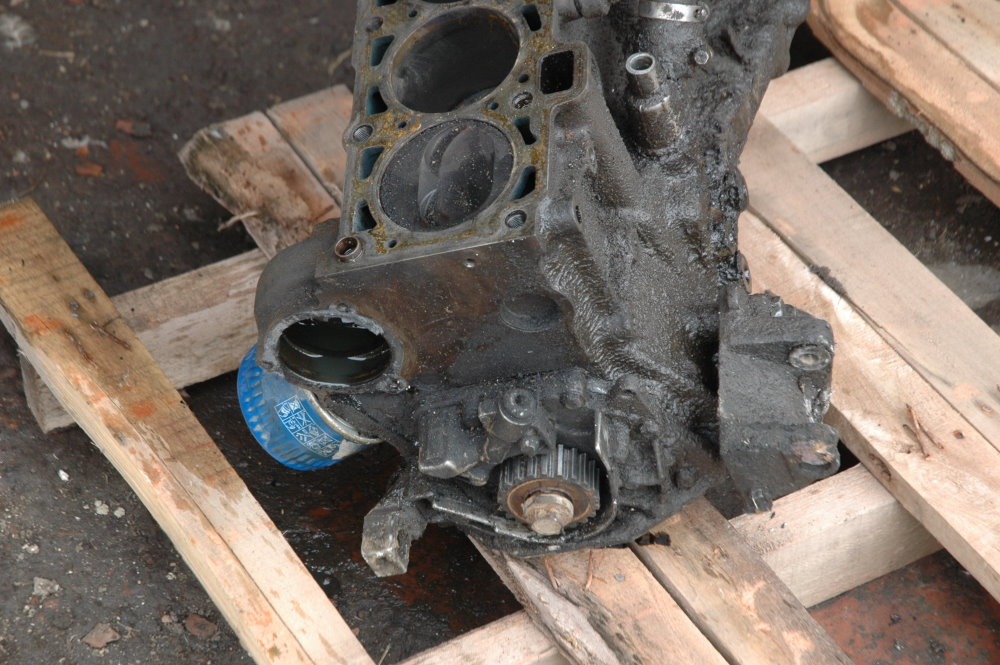
This can end up postponing the problem for “later”
If the problem is not immediately eliminated, then after some time it will become much more serious and it will be necessary to carry out not minor, but major repairs of the engine.
What does the term "stalls hot" mean?
Using this term, most drivers mean that the power unit has been running for some time (usually 10 minutes or more), and the coolant temperature has exceeded 85-95 degrees (depending on the type of engine). With such heating, all thermal gaps acquire minimum values, and the efficiency of fuel combustion increases to a maximum.
Reasons why the car stalls "hot"
If the machine heats up and stalls, then the reasons should always be sought in the technical condition of the engine and its units, and often the defect may be in several related or even unrelated systems. Next, we will talk about all the most common reasons why the car stalls when hot, and all other malfunctions are a combination of them.
Cooling system malfunctions
Cooling system failures are:
- breakage of the pump belt (if it is not connected to the timing belt);
- low coolant level;
- a thick layer of scale on the walls of the channels (appears due to mixing different types of antifreeze);
- damage to the pump blades;
- pump bearing jamming;
- dirty radiator;
- crushed pipes and tubes;
- defective temperature sensor.
This is due to the fact that inefficient cooling of the motor causes local overheating of individual sections of the power unit (most often the cylinder head) and boiling of antifreeze in them. And since the basis of any antifreeze is water, when it boils, it turns into steam and escapes into the atmosphere through the valve in the cap of the expansion tank, which leads to a decrease in the level.
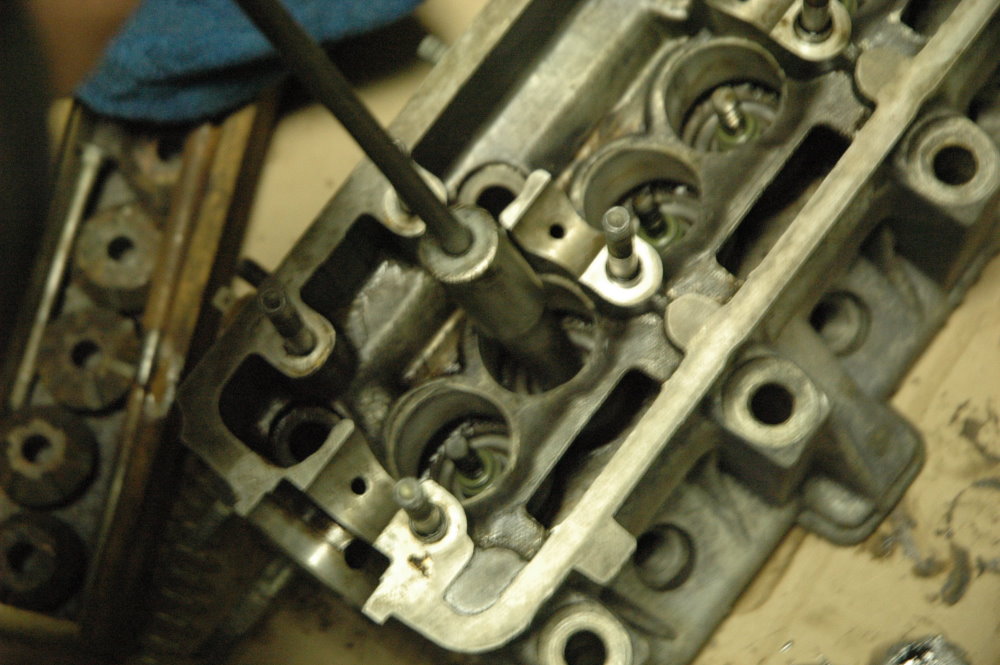
Replacing valve stem seals
Remember: even if the engine boils only once or quickly heats up to dangerous values, but does not boil, then it already needs to be opened and diagnostic repairs carried out. It is much easier to replace oil seals that have dried out from high temperatures than to carry out major repairs after a few months.
Boiling fuel in the rail or carburetor
If the car warms up and stalls, and does not start, then the malfunction is caused by improper operation of the cooling system (weak coolant circulation or a dirty radiator), while the arrow of the temperature indicator is near the red zone, but does not cross it.
Then the temperature in the ramp or carburetor decreases and the engine can be started again, but under load it will not work for long. If at the same time the indicator shows a temperature below the red zone, then the sensor must be replaced. There are cases when the car starts up hot and stalls immediately or after a few seconds, they are also caused by overheating of the fuel in the rail or carburetor. After the temperature drops, such a motor starts normally, which is a confirmation of this reason.
Incorrect proportion of air-fuel mixture
The reasons for this malfunction are:
- air leaks;
- too high fuel level in the float chamber;
- leaking or sinking injectors.
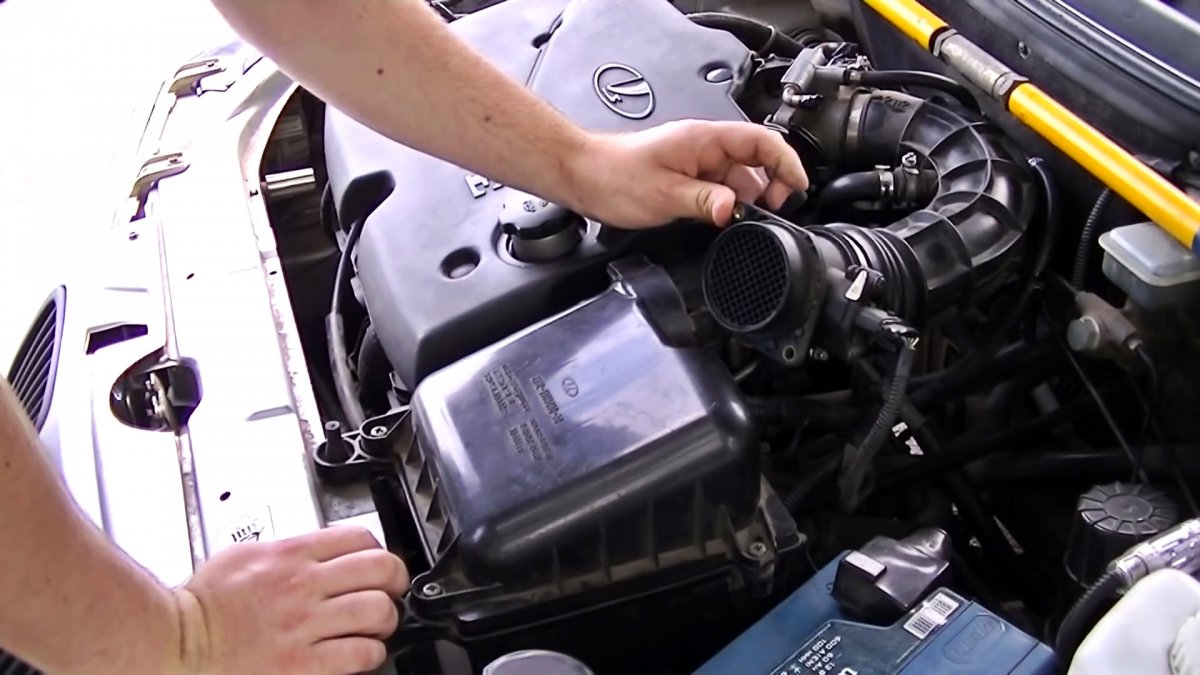
Diagnostics of the car for air leaks
If the carbureted engine starts easily when cold even without pulling the choke handle, and then the car heats up and stalls, then the reason for this is too high a fuel level in the float chamber or a dirty air jet. Excess fuel makes it easy to start the engine when cold, but after warming up, a leaner mixture is required, and the carburetor cannot make it. For the same reason, on a carbureted car, a warm power unit stalls when you press the gas pedal, but while the engine is cold, this does not happen even without suction.
If the carburetor is devoid of a choke handle (this function is automated in it), and the car stalls when it is hot and does not start until it cools down, then you cannot do without removing and disassembling this part. Clean jets and the correct fuel level indicate overheating of this part (read the previous section).
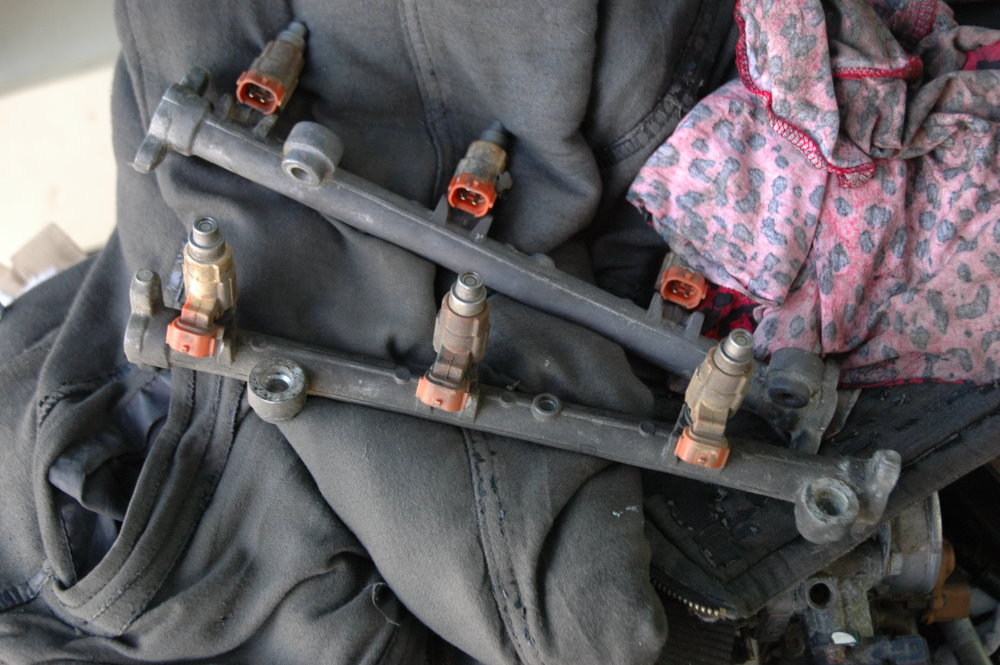
Ramps and nozzles often become one of the reasons leading to engine stop
On injection power units, this behavior is most often caused by a sinking or loose closure of the nozzle needle, due to which too much fuel enters the chamber. A mixture with such proportions flares up poorly, and also burns for a long time, which leads to the inefficient conversion of gasoline or diesel fuel into kinetic energy, which causes the engine to stop.
Loss of contact due to thermal expansion
This malfunction most often occurs where the driver has to drive on dirty or salt-based de-icing roads.
In external manifestations, this problem is similar to fuel boiling, and the only diagnostic method is a complete check of all contacts.
Incorrect valve adjustment
If the thermal gap between the valves and the camshaft (camshafts) is less than necessary, that is, they are clamped, then after the engine warms up, such valves no longer close completely, which reduces compression and leads to overheating of the cylinder head. During the combustion of the air-fuel mixture, part of the hot gases breaks into the cylinder head and heats it up, which leads to the problems described above, that is, overheating:
- Cylinder head;
- ramps;
- carburetor.
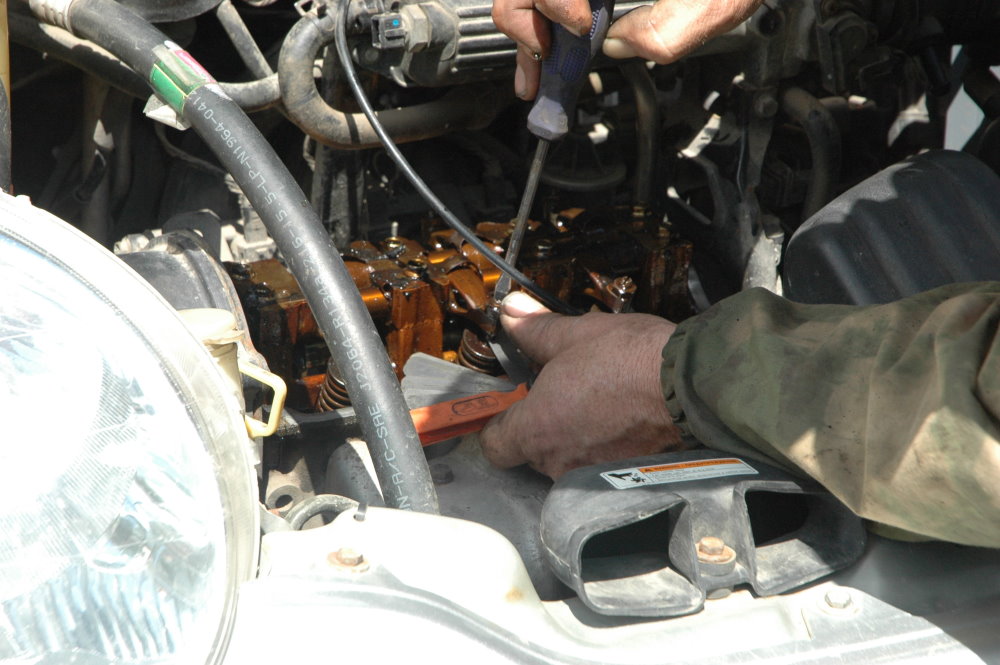
Valve clearance adjustment
A distinctive feature of this problem is the clatter of valves on a warm, and often even on a cold engine, and it also starts to triple, but motors with hydraulic compensators are not subject to it. Therefore, if a car equipped with hydraulic compensators stalls on the move on a warm engine, then other reasons must be looked for.
What to do if the engine starts to stall on a hot
If this happened once, then it may be an accident caused by some unaccounted for factors, but if the car stalls when hot, you need to look for reasons. Remember, a serviceable engine, with a properly configured fuel system, never turns off without the driver's command, because the cooling system provides a constant operating temperature and all processes in such a power unit proceed normally.
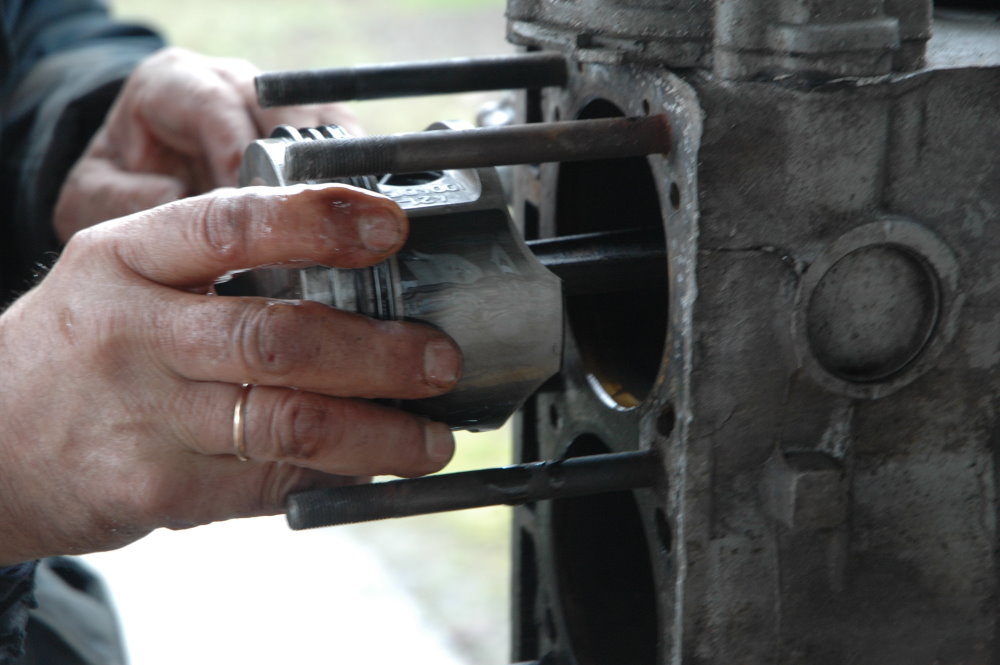
If the reason why the engine stalls “hot” is not eliminated, then an overhaul of the engine may soon be required.
Therefore, after making sure that the car stalls when it is hot and does not start until it cools down, carry out diagnostics yourself, or deliver the vehicle by a tow truck to a car service.
Conclusion
If the car stalls on the go with a warm engine, then this always indicates serious problems of the power unit and the need for urgent repairs, because some of the systems that make up the car engine are not working properly. Having found such a defect in yourself, do not take risks, first fix the problem and only then go on the road. Remember, even by calling a taxi, you will spend much less than the cost of an engine overhaul, and it will have to be done if you neglect such a malfunction and continue driving without eliminating the cause of the defect.

